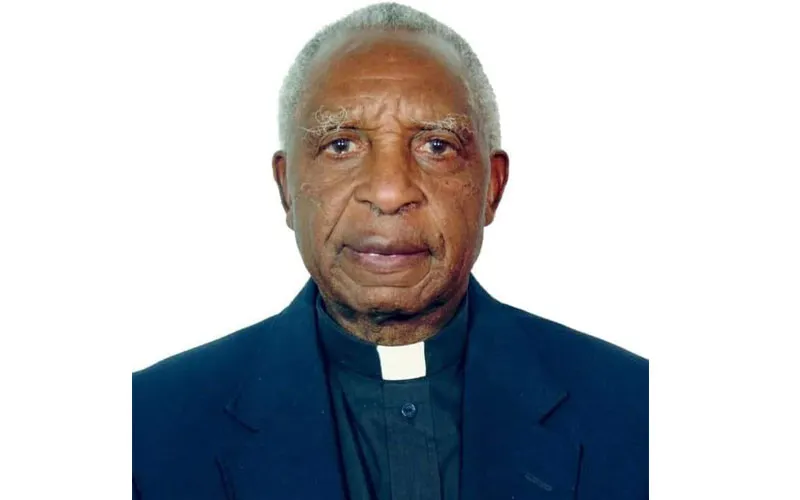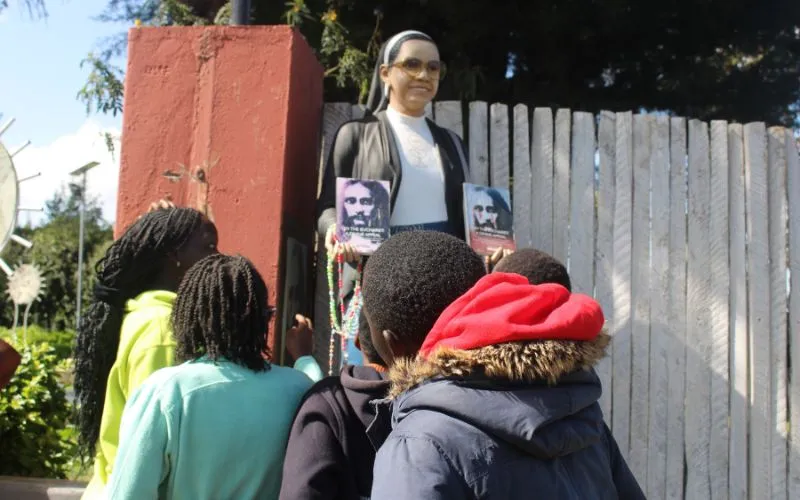In his interactions with the late Priest, Fr. Mashayamombe adds, he learnt “to set standards.”
“The man had an amazing level of personal standard that is just astronomical. He would say, ‘Hey when you’re doing your things, make it as if there is no tomorrow. When you’re saying Holy Mass say it as if there is no tomorrow. When you’re preaching, preach as if there is no tomorrow; whatever you are doing, give it your very best,” the member of the Clergy of Harare Archdiocese told ACI Africa.
He recalled one of his interactions with Fr. Ribeiro saying, “I had the privilege of interviewing him five years ago; I had the opportunity to open my heart to him, he opened his to me. We spoke about his family, how he became a Priest, how he loved God and today I cherish these values that he spoke to me.”
“Fr. Ribeiro, the nation has declared you a national hero; I wish the Church would declare you a saint. I know that you are my hero and my saint, my mentor. In everything that I do, I do it because you taught me to be the best and to do the very best,” Fr Mashayamombe said, adding, “My oblation to the Lord is, may You accept the soul of Emmanuel Ribeiro for he did very much in the vineyard.”
Born in Zimbabwe in 1935, Fr. Ribeiro was ordained a Priest in 1964. He served as the Prison Chaplain during the country’s struggle for independence.
In his tenure as Prison Chaplain, Fr. Ribeiro facilitated the current President of Zimbabwe, Emmerson Mnangagwa’s removal from death row after he had been arrested for bombing the Rhodesian locomotive at Fort Victoria railway station.
The late Priest also planned the escape to Mozambique of the former President Robert Mugabe and Edgar Tekere during the struggle for the then Southern Rhodesia’s liberation in 1975.
He was the head of the committee that wrote the country’s national anthem and was among the designers of Zimbabwe’s national flag.
In 2019, he was among religious leaders under the auspices of the National Elders Forum who called for the removal of sanctions declared on Zimbabwe.
The late Fr. Ribeiro is also credited with composing the first liturgical hymns in the Shona language. He was also a novelist.








